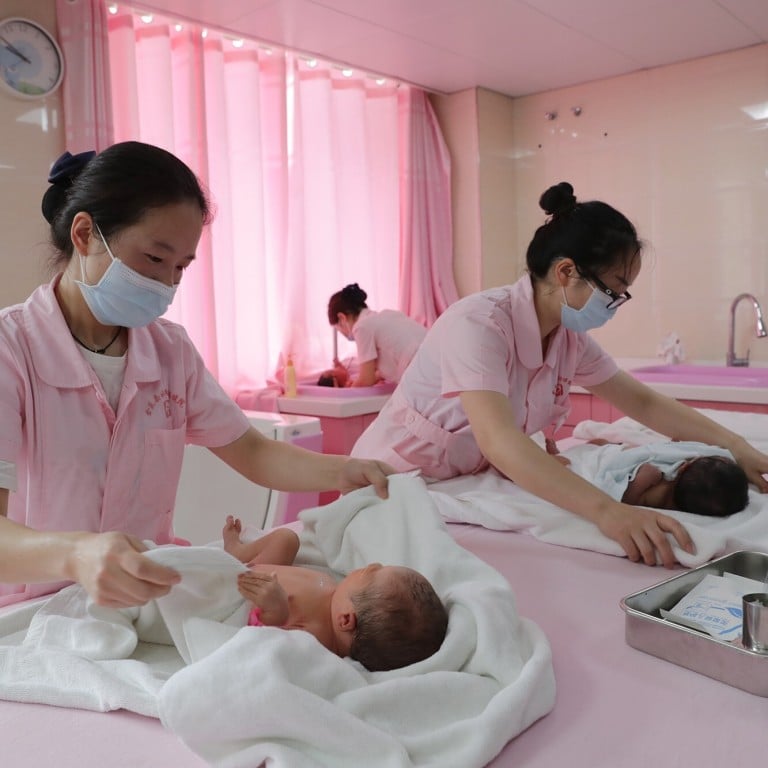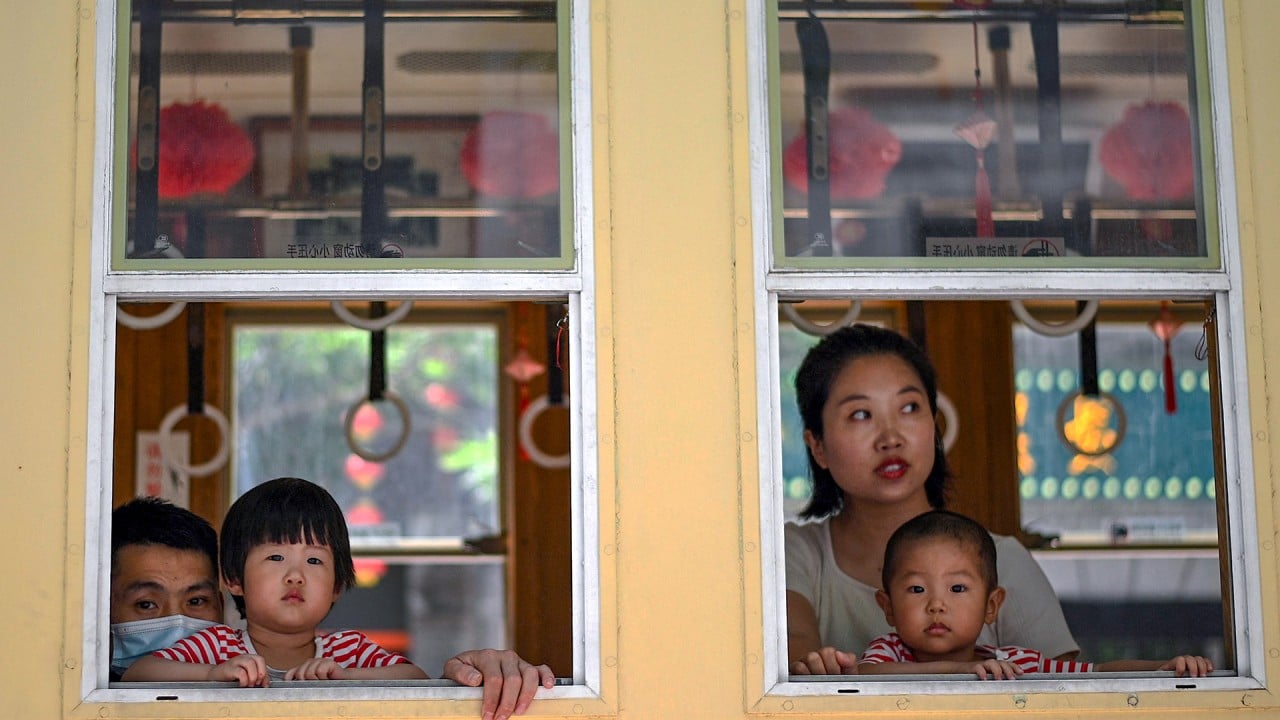
China passes revised law allowing couples to have up to 3 children
- Amendment approved by top legislative body also includes support measures to encourage people to have bigger families
- But demographer says it may not be enough to reverse fertility decline and calls for population control to be scrapped
The revised law also includes support measures to encourage people to have bigger families, including financial, tax, insurance, education, housing and employment measures.
“This amendment adapts to our country’s demographic changes, responds to people’s major concerns and lays a legal basis for the implementation of the three-child policy,” a lawmaker from the National People’s Congress Standing Committee told state news agency Xinhua.

02:04
China expands two-child policy to three
The census data also showed that China’s fertility rate fell to 1.3 children per woman, well below the replacement level of 2.1 needed for a stable population. By comparison, Japan – another rapidly ageing society – had a fertility rate of 1.369 in 2020.
Chinese city offers subsidies to encourage families to have more children
Many young Chinese point to issues like a lack of affordable childcare, rising living costs and long working hours as reasons they would think twice about starting a family, or having more than one child.
The revised law attempts to address some of these concerns with the introduction of economic and social support measures, as well as additional health care such as new maternal and perinatal consulting services and improved fertility treatment services. Local governments are also encouraged to introduce extra paid leave for parents who have children aged under three.

03:49
How much does it cost to raise a child in China?
But Huang Wenzheng, a demographer and senior fellow at the Centre for China and Globalisation in Beijing, was not optimistic that the policy change and support measures would be enough.
Huang said the measures failed to address the reasons people are reluctant to have bigger families, including income distribution, land and housing policies, which have led to a huge wealth gap.

